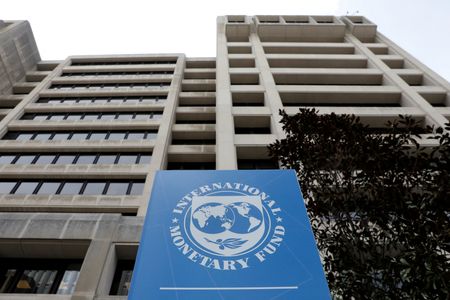
IMF: Staff-level agreement reached with Pakistan for release of USD 1.17bn loan tranche

Islamabad, Jul 14 (PTI) Pakistan is at a “challenging economic juncture”, the IMF has said as it reached a preliminary Staff-Level Agreement on the combined seventh and eighth reviews for a USD 6 billion loan facility for the cash-strapped country.
The agreement paves the way for the release of the much-awaited USD 1.17 billion loan tranche that had been on hold since earlier this year, the Dawn News reported on Thursday. The deal materialised after Pakistan met the IMF’s demand that the country achieve a primary budget surplus of Rs 152 billion to revive the bailout package, the report said.
In a statement on its website, the IMF said it has reached “a staff-level agreement (SLA) with the Pakistan authorities for the conclusion of the combined seventh and eight reviews of the extended funded facility (EFF) supported programme.” It added that the agreement is subject to approval by its Executive Board.
“Subject to Board approval, about USD 1,177 million (SDR 894m) will become available, bringing total disbursements under the programme to about USD 4.2 billion,” it said.
The international lender said a team led by IMF Mission Chief to Pakistan Nathan Porter finalised the discussions with Pakistan and that it had also agreed to consider extending its EFF, currently worth USD 6 billion, till the end of June 2023, as well as augmenting it by USD 720 million to expand its size to USD 7 billion.
The statement said this decision was taken to support the programme’s implementation, meet Pakistan’s higher financing needs in FY23 and catalyse additional financing. Soon after the IMF released the statement, Finance Minister Miftah Ismail also confirmed the news on Twitter.
“I want to thank the prime minister, my fellow ministers, secretaries, and especially the Finance Division, for their help and efforts in obtaining this agreement,” he said. Prime Minister Shehbaz Sharif congratulated Ismail and Foreign Minister Bilawal Bhutto-Zardari, as well as their teams, for their efforts. “The agreement with the Fund has set the stage to bring [the] country out of economic difficulties,” the premier said.
In the statement issued on Wednesday, the IMF noted that Pakistan was at a “challenging economic juncture”. “A difficult external environment combined with procyclical domestic policies fuelled domestic demand to unsustainable levels,” it said, adding that the resultant economic overheating led to large fiscal and external deficits in FY22, contributed to rising inflation, and eroded reserve buffers.
In light of this, the money lender outlined “policy priorities” for Pakistan to “stabilise the economy and bring its policy actions in line with the IMF-supported programme.” These priorities include the steadfast implementation of the budget for the current fiscal year, reforms in the power sector, working out a monetary policy to bring down inflation to “moderate levels”, reducing poverty and strengthening governance.
Pakistan entered the IMF programme in 2019, but only half the funds have been disbursed to date as Islamabad has struggled to keep targets on track.
The last disbursement was in February and the next tranche was to follow a review in March, but the government of ousted prime minister Imran Khan introduced costly fuel price caps, which threw fiscal targets and the programme off track.
The new coalition government has removed the price caps, with petrol and diesel prices going up by as much as 66 per cent and 92 per cent over a month.

















POST COMMENTS (0)